
In an interview with Ophthalmology Times, Quan Dong Nugyen, MD, MSc, discusses ongoing research into Tinlarebant, an investigational drug being studied as a treatment for Stargardt disease in adolescents.

In an interview with Ophthalmology Times, Quan Dong Nugyen, MD, MSc, discusses ongoing research into Tinlarebant, an investigational drug being studied as a treatment for Stargardt disease in adolescents.

This patented technology is designed to enhance the light sensitivity of a multi-characteristic opsin developed by Nanoscope as a gene therapy.

According to the company, the platform accompanies the launch of Qdata Retinitis Pigmentosa for life sciences and the development of Practice Insights for clinicians.

According to the company, MCO-010 is an ambient-light activatable Multi-Characteristic Opsin (MCO) optogenetic therapy for vision restoration in advanced retinitis pigmentosa (RP), irrespective of gene mutation.

Tinlarebant is an oral therapy designed to reduce the accumulation of vitamin A based toxins that cause retinal disease.

The NIH-supported findings could pave the way for genetic testing, clinical trials, and therapy development for these diseases.

The announcement marks the second FDA designation for ATSN-201, which previously received Rare Pediatric Disease designation.

Retina is a rapidly advancing field with promising research, technology, and treatment areas. Two stand out as particularly exciting.

According to research conducted by investigators at the Perelman School of Medicine at the University of Pennsylvania School of Medicine, patients with a rare inherited disease affecting their sight experienced quick vision improvements that sustained for the full year-long study.

The one-time intravitreally delivered gene therapy is for the treatment of retinitis pigmentosa (RP).

The 4-year study is set to involve up to 20 patients and is a part of the Foundation's Uni-Rare natural history study.

The product candidate is a modifier gene therapy for broad retinitis pigmentosa indication.

According to the company, the priority review voucher would be issued upon approval of OPGx-LCA5.
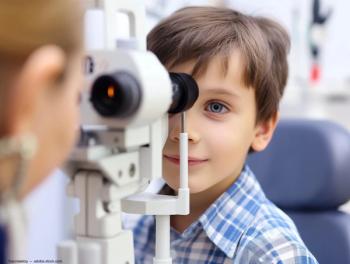
The LIGHTHOUSE study a Phase I/II, open-label, dose-escalation and dose-expansion clinical trial is currently investigating the safety and tolerability of ASTN-201 for XLRS.

Tim Cherry, PhD, and Debarshi Mustafi, MD, PhD, have been awarded a $150,000 Clinical & Research Synergy Pilot Award from Seattle Children’s Research Institute to determine the genetic causes of unsolved inherited retinal diseases.

This clinical milestone marks a new step in treating the condition with a potential long-term benefit.

Researchers at National Taiwan University Hospital concluded that significant differences were observed in visual acuity, refractive state and myopia rate between patients with inherited retinal disease and the general population.

KIO-30 is a small molecule photoswitch that selectively confers light-sensing capabilities to retinal ganglion cells following the degeneration of photoreceptors in inherited retinal diseases.
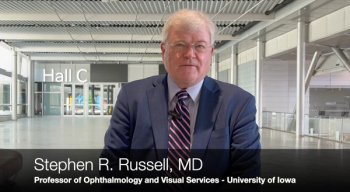
Stephen Russell, MD, discussed his presentation on safety and durability of voretigene neparvovec-rzyl for biallelic RPE65 at the annual ASRS meeting in Stockholm, Sweden.
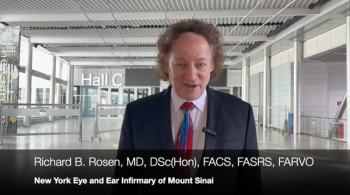
Richard B. Rosen, MD, from the New York Eye and Ear Infirmary of Mount Sinai discussed his presentation on sickle cell retinopathy and the measurement with dynamic OCT angiography and quad-fusion adaptive optics imaging at the annual ASRS meeting in Stockholm, Sweden.
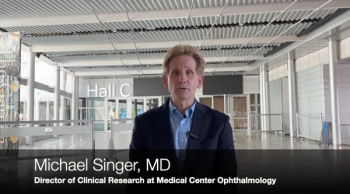
Michael Singer, MD, presented 100-week results from the RESTORE trial and shares key takeaways from his presentation at this year's American Society of Retina Specialists (ASRS) meeting.

Data in early-stage patients was presented at 42nd American Society of Retina Specialists Annual Scientific Meeting, being held in Stockholm, Sweden.

Patrick C. Staropoli, MD, talked about his presentation on the clinical characterization of Hexokinase 1 (HK1) mutations causing autosomal dominant pericentral retinitis pigmentosa at the annual ASRS meeting in Stockholm, Sweden.
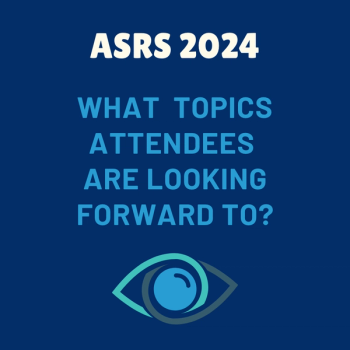
Sydney M. Crago, Assistant Managing Editor of Ophthalmology Times and Modern Retina, spoke with attendees, who shared which topics they are most looking forward to discussing at the ASRS meeting held in Stockholm, Sweden.

Researchers, led by Shigemi Matsuyama, PhD, will conduct research seeking a potential breakthrough drug that can be taken orally—one that may address many RP disease manifestations, regardless of the underlying genetic mutation.